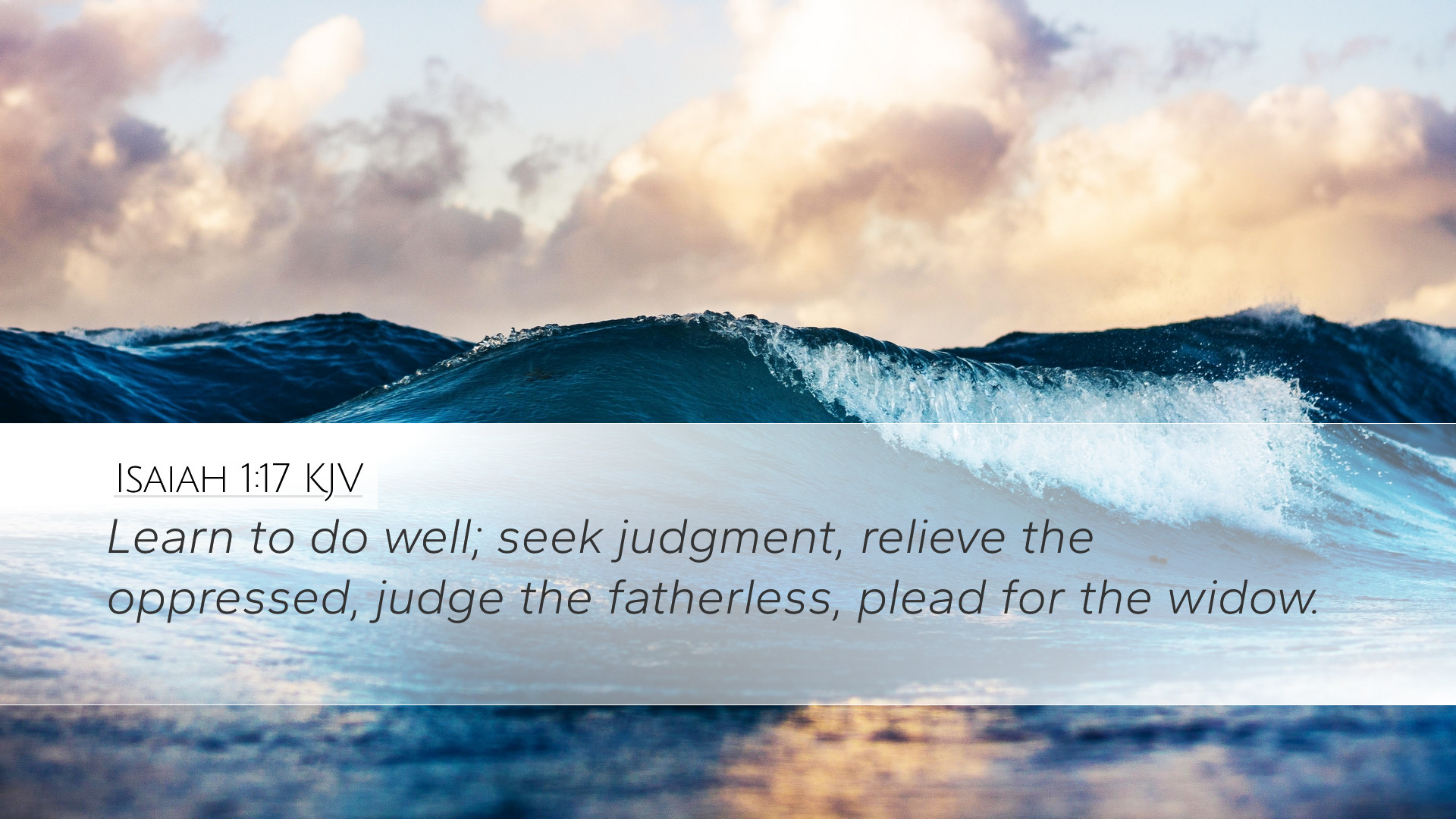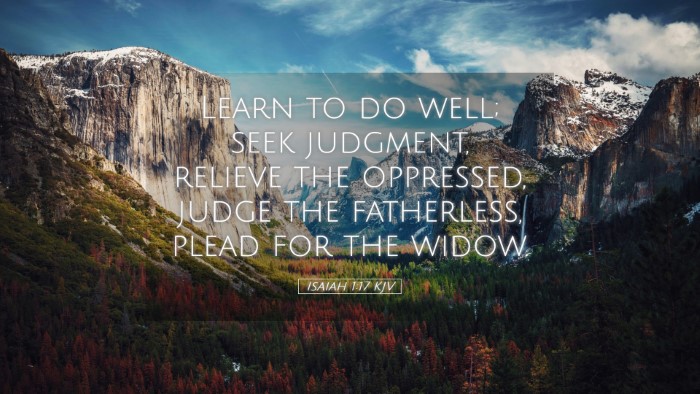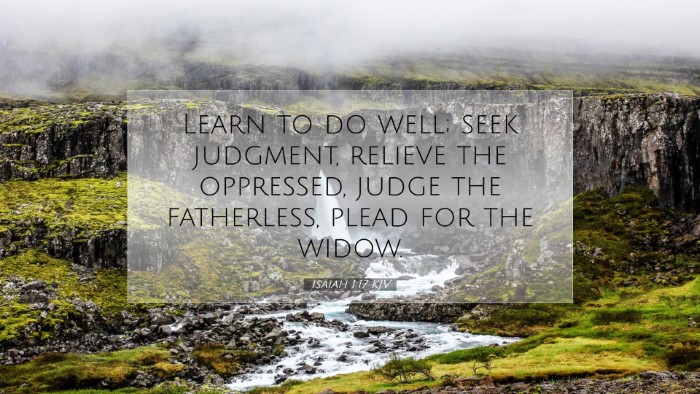Understanding Isaiah 1:17
Isaiah 1:17 commands us to "Learn to do good; seek justice, correct oppression; bring justice to the fatherless, plead the widow's cause." This verse encapsulates the essence of Israel's moral and social responsibilities, calling for a return to righteousness and ethical conduct amidst a people characterized by corruption and negligence.
Contextual Background
The book of Isaiah is largely a prophetic work that addresses the nation of Israel during a critical period in their history. The verses preceding Isaiah 1:17 paint a picture of a nation steeped in sin and ritualism, where the formal worship of God had become an empty exercise divorced from ethical living. This makes the charge in verse 17 particularly poignant and vital.
Exegesis of Key Phrases
- "Learn to do good" - This phrase emphasizes a continuous and conscious effort. It suggests that doing good must be an intentional process, informed by the knowledge of God's will revealed in Scripture.
- "Seek justice" - Here the prophet commands active engagement in social justice. It is not enough to passively support good; believers are tasked with pursuing justice vigorously in society.
- "Correct oppression" - This highlights the moral obligation to challenge and rectify situations of injustice and exploitation. The role of the believer extends beyond personal holiness; it requires an advocacy for those marginalized.
- "Bring justice to the fatherless" - The "fatherless" represents the vulnerable in society. Ancient Israel recognized the plight of orphans as critical; thus, divine justice requires active protection and provision for them.
- "Plead the widow's cause" - Similarly, the widow denotes those facing societal pressures without support. This phrase urges believers to intercede and stand up for those who cannot defend themselves.
Theological Themes
- Social Justice - Isaiah’s message pushes against the boundaries of personal piety to encompass the collective social responsibility of believers. This reflects the broader biblical narrative suggesting that faith must manifest in action towards justice and mercy.
- Divine Expectations - The expectation of God extends to ethical behavior, and this provocation from the prophet illustrates that worship divorced from justice is meaningless.
- Community Responsibility - There’s an inherent call for community engagement. The responsibilities towards the least of these—widows and orphans—suggest that faith is lived out in community contexts, establishing a direct link between spirituality and social ethics.
Commentary Insights
Matthew Henry emphasizes the need for practical godliness. He stresses that knowledge should not merely puff up but lead to significant changes in one's behavior and attitude toward those in need. For Henry, the call to do good is rooted in the nature of God, who is inherently good and just.
Albert Barnes provides a detailed exploration of the societal implications of this verse. He notes that genuine worship of God cannot exist in isolation from our treatment of others. True devotion to God is mirrored in how we engage with societal issues like justice for the oppressed and marginalized.
Adam Clarke elaborates on the meaning of justice as not just legal adherence but also as relational and communal ethics. Clarke insists on understanding the underlying principles of compassion and kindness that should drive such actions. He points out that the urgency in Isaiah's voice suggests the pressing need to respond to these injustices.
Application for Believers
This verse remains profoundly applicable today, calling congregations and individuals to reflect on how their faith integrates with social responsibility.
- Empowerment through Action: Pastors and leaders should encourage church communities to engage in initiatives that support justice work, demonstrating their faith through action.
- Educational Endeavors: Bible scholars and students can delve into practical theology, exploring how biblical principles inform contemporary justice issues.
- Community Advocacy: Believers are called not to remain silent on societal injustices but to raise their voices and advocate for those in vulnerable positions.
Conclusion
Isaiah 1:17 is not only a call to individual morality but a clarion call to communal action and responsibility. It urges believers to embody the justice of God in tangible ways, making an impact in the world around them. As we integrate these insights, let us continue to seek a faith that is alive and active, reflecting the heart of God towards justice, mercy, and love for all humanity.


